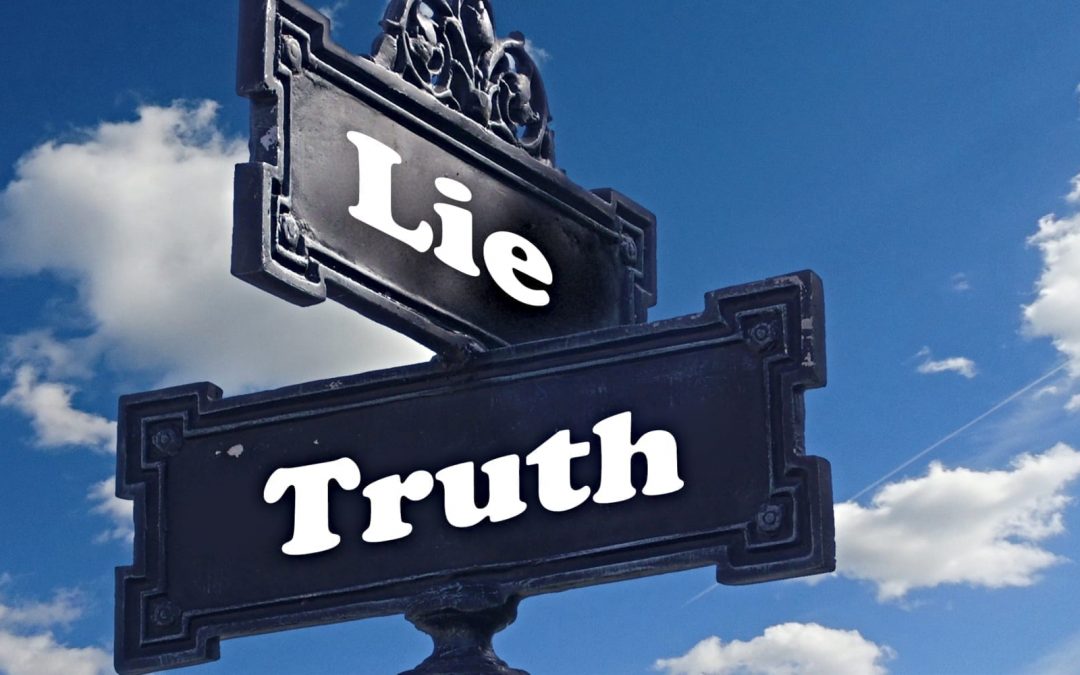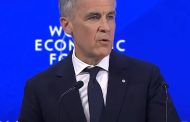By Adagbo Onoja
This is one of the commonest phrases we hear or read from those who write. It is not clear why it is so freely used even when no truth claim has been able to establish itself beyond question in the analysis of the social world. In the physical and natural sciences, the problem does not exist. Water boils at 100 degrees centigrade everywhere in the world. But that is not the case with human beings. Some people boil over at much lower temperature. Others take a higher score to ‘boil’.
Rene Descartes made the most deft move to solve the problem of how we might establish the truth. As nearly successful as he was in establishing how to reach the truth, he crashed, ending up with creating a bigger problem or what we know today as the Cartesian anxiety or the incompleteness of our knowledge of the world based on what our mind can grasp.
Then the empiricists entered the fray. They failed the test.

Post-truth?
Immanuel Kant, Hegel and Marx tried. They didn’t get it. As Derrida reminds us, Marx who said the material is primary, however, opened his most powerful text – The Communist Manifesto – with spectres that he could see to be haunting the world. Karl Popper and others who followed him tried but met the same crash.
The protest social theories (postcolonial, decolonial, etc) didn’t dabble in to traditional epistemology as such, basing theirs on the decolonial ontology and the seemingly obvious imperative for resistance to colonialism. But colonialism is not what everyone understands from the same position. Up till today and even in the most educated circles around the world, there are those who do not just believe it was right and proper, they are still at it but by other names.
Discourse theorists then entered the fray with the position that truth exists but there are yet no method by which we can know it. They concluded that truth can only be a political project. For them, it is power which defines what is true or false.
The late British-Caribbean giant, Prof Stuart Hall, gave what must still be the most memorable example of this claim to date. He cited the Arab -Israeli conflict. To the Arabs, the conflict is a struggle for homeland. To the Israelis, it is a struggle against terrorism. Israel and its network of friends since the start of the conflict have been such that the most categorical UN resolutions on the conflict have amounted to nothing.
Yet, we have across rural and urban Nigeria today people who are ready to die in defence of either the Arabs or Israel. While for most Muslims, Israelis are land grabbers acting in concert with Western imperialism, most Christians see Hamas as an Islamic terrorist organisation determined to wipe out God’s own people. So, each side has its own reasons and the kind of facts that go with such reason.
Discourse theorists argue that this attachment to one side or the other of any social issue is a product of hegemony not of truth. By referring to hegemony, I am referring to the post-Marxist discourse theory because the theory is a bunch of variants. Hegemony is the politics of constructing the truth. The idea that truths are constructed is the same thing as saying that there are no natural truths. Truth is a permanently changing stuff rather than a fixed thing. There was a time colonialism was erected on the truth of a civilising mission. Today, that truth has evaporated. And if we need a more recent example, it could be that of Atiku Abubakar, former Vice-President of Nigeria who had the image of corruption so much tagged on him but who is today some hero of democracy in the eyes of many Nigerians.
In Idoma land in central Nigeria, the position of the discourse theorists is nothing new at all. That is what Idoma mean when they say that it is only when the night comes that we shall know who will lie in the front or back of the bed. Or when the same Idoma people say that ‘Olanyega’ says it is the future that decides. Olanyega is the name of a village in Edemoga District in Idomaland but, in this case, it serves as a metaphor. All such statements that fill Idoma wise sayings and must also be the case with other Nigerian and African languages are outright evidence of indigenous post-Marxism which existed even before colonialism, not to talk of the coming of Jacques Derrida, the French Philosopher of ‘perhaps’. The Idoma discourse analysis exemplified by the above statements is the same thing that post-Marxist variant of discourse analysis call radical contingency: The dependency of one reality for identity on several other identities such that reality is beyond sequence, evolution and orderly progression. It is a bit too chaotic to be predictable. Reality is beyond facts because have no meaning in themselves. That is why both angels and the devil can use statistics beautifully without any protests from statistics.
If this is the background in both Western and African historical encounter with truth, why do we still revel in the belief that in our everyday lives, we are acting on the basis of truth? This man is like this, that man is like that; My wife is this, his wife is that. We are the good people, they are the bad guys. Our religion is the best, their religion is not good. Our city is the best, theirs is horrible.

The 2nd anniversary of his departure!
Confronted by the challenge to such simplistic categorisations, people like Donald Trump started echoing the notion of post-truth as if there had even been a consensus that the thing called truth is established universally.
I do not advise those who might find this interesting to quote anything from here yet because it is still too hotch-potch. It is hotch-potch because there are no references, for instance, to Ferdinand de Saussure here who is the source of the research underpinning the entire discourse analysis. There’s no reference to the place of language in Antonio Gramsci’s critique of classical Marxism before its re- radicalisation by the post-Marxists. There are no references to them because this article is not an academic exercise as such but a caution against certitude or the belief that our actions are based on the truth. No. Intelligent hunches are possible but not truth because most if not all truths are based on power relations.
It happens because there is something called counter-hegemony but, in most cases in everyday life, the more powerful side – political party, senior brother, senior sister, richer neighbour, – are always the ones who are truthful, reasonable, sociable, well behaved, thoughtful, of good character, etc. It doesn’t matter what form of power they possess: discursive, material, coercive, structural, religious, etc. Interestingly, the Idoma people reckon with the political character of truth when they say, “let us agree with the ‘Olumamu’ (Chairperson) so that the meeting could come to a close”. In other words, our elders realised that truth and power go together and that tactlessness in dealing with the truth/power alliance can lead to the sort of stalemate between the community and Ezeulu in Achebe’s Arrow of God.
The reckoning with ‘Olumamu’ is not a reckoning that the truth paraded by a hegemon today cannot be transcended. In fact, hegemons and their truths are very vulnerable. One little thing happens and the solid truth becomes watery. But it is that resistance can be costly because resistance to any form of power – in the family, in the market, in the Church or Mosque or in schools – requires organising. Theorists of the radical tradition have set out in details how to do this but that is at the larger society scale. It is flimsy truth concocted out of fear at the micro level we are concerned about here!
On this, the late Dr Obed Mailafia, an ex-deputy-governor of the Central Bank of Nigeria (CBN) had an interesting answer ever. Whenever asked how it happened that someone with education and exposure did such and such a thing, he would say: you take people too seriously. Do you think many people are really organised?
In one sentence, this is a tribute to him in the second anniversary of his journey without return. It was what we Intervention could not do four days ago when the second anniversary fell due.




























